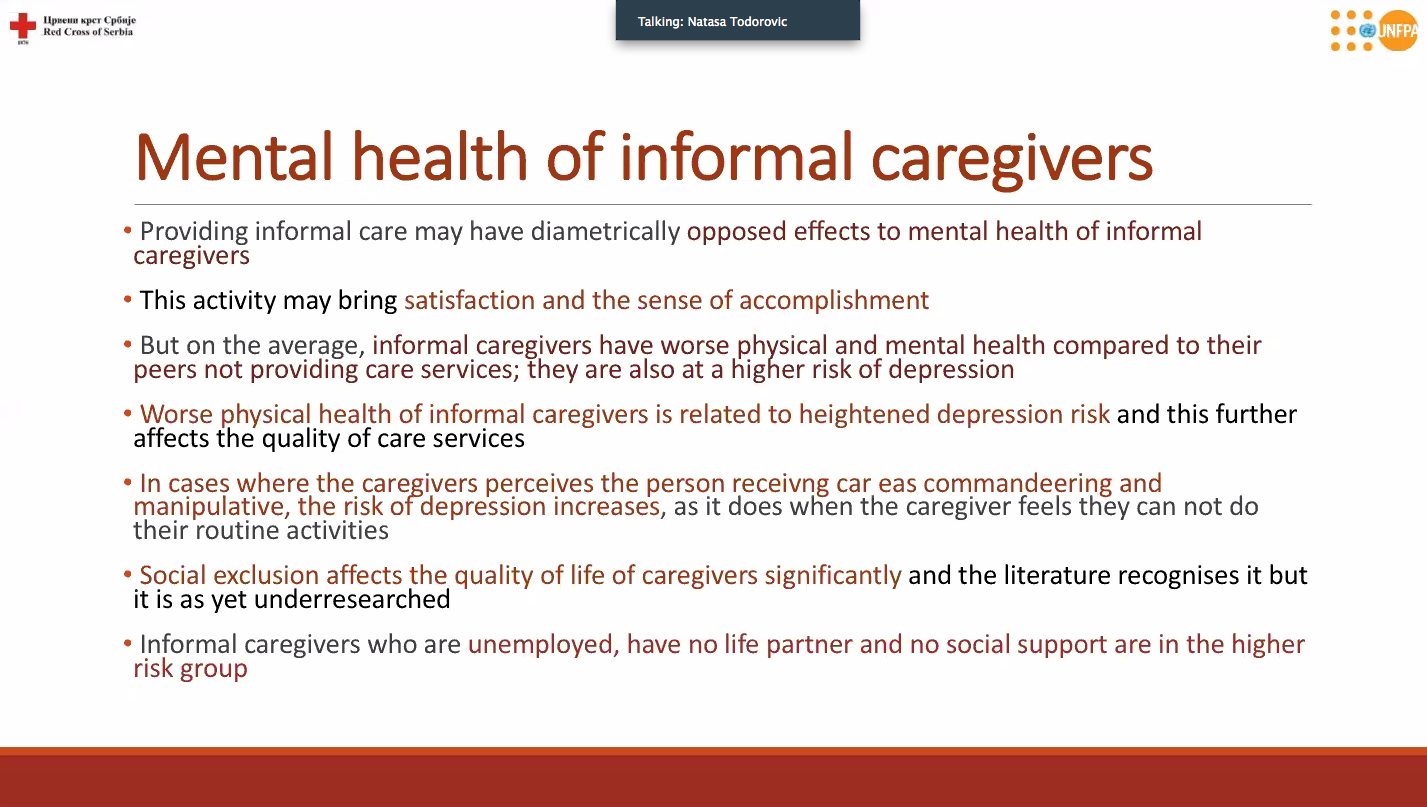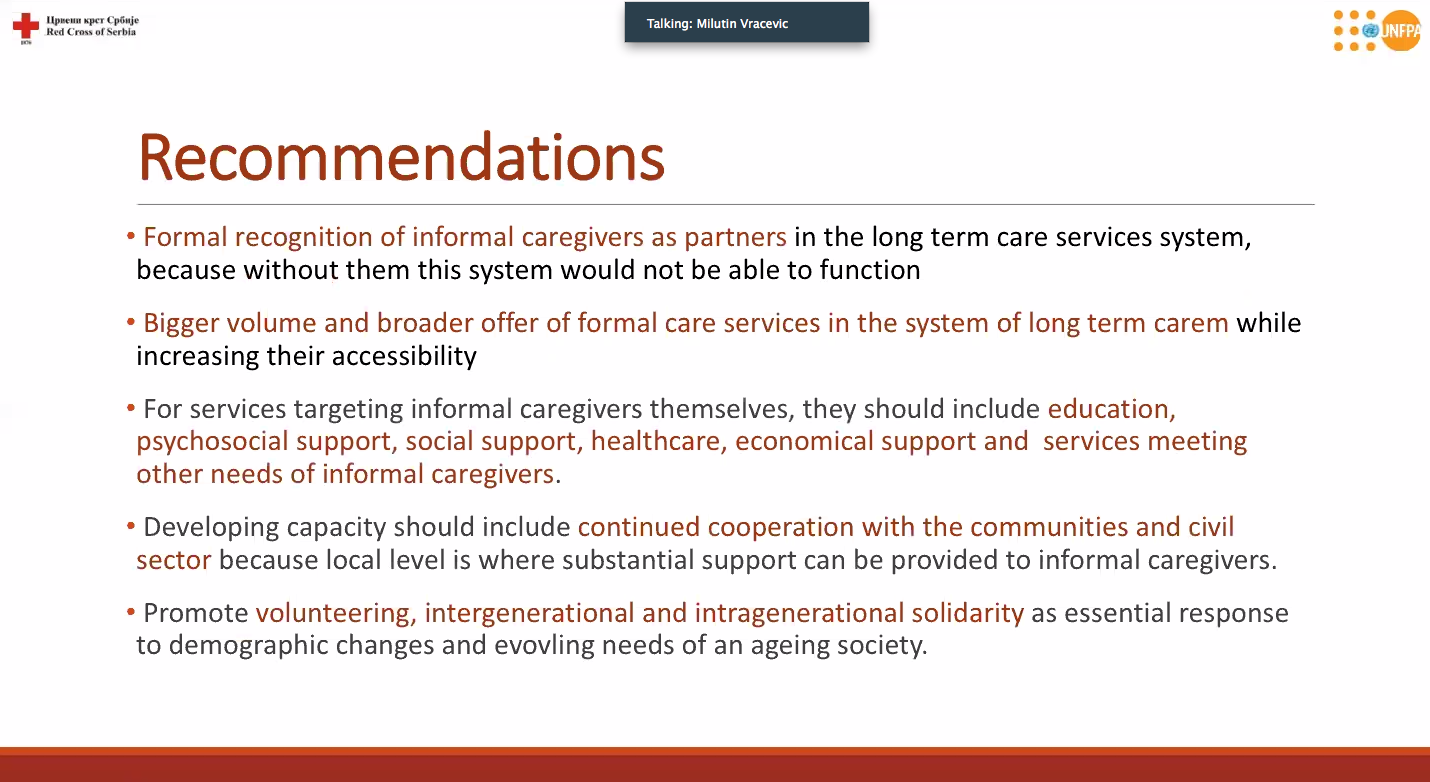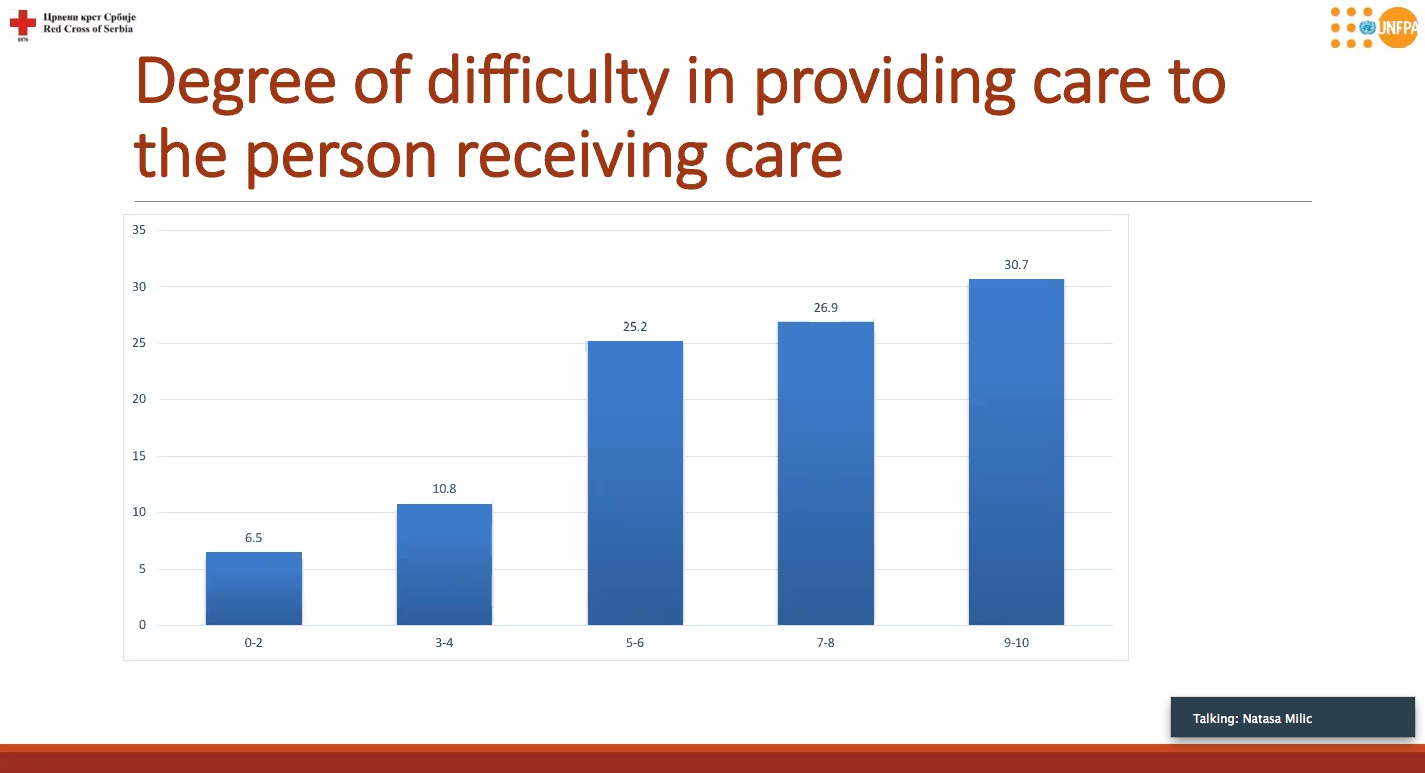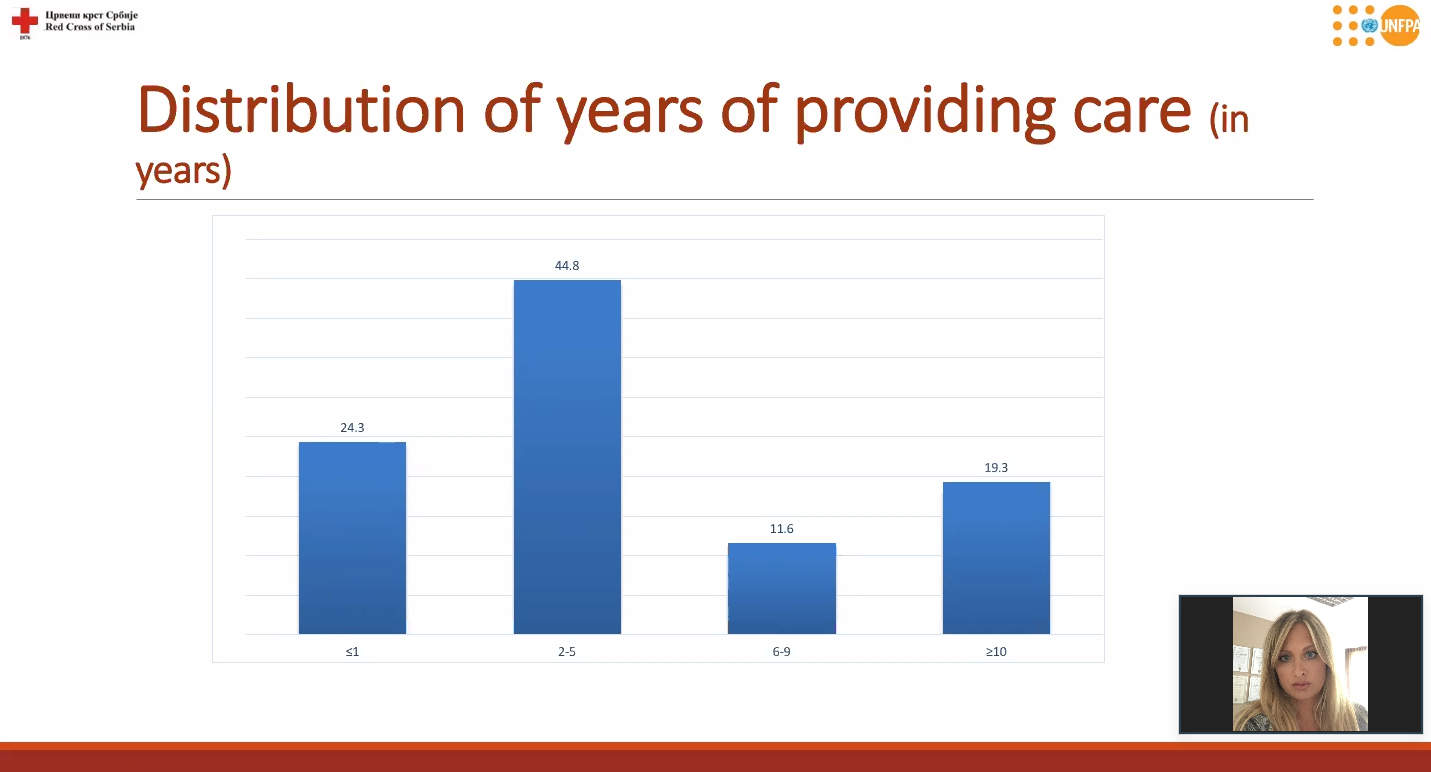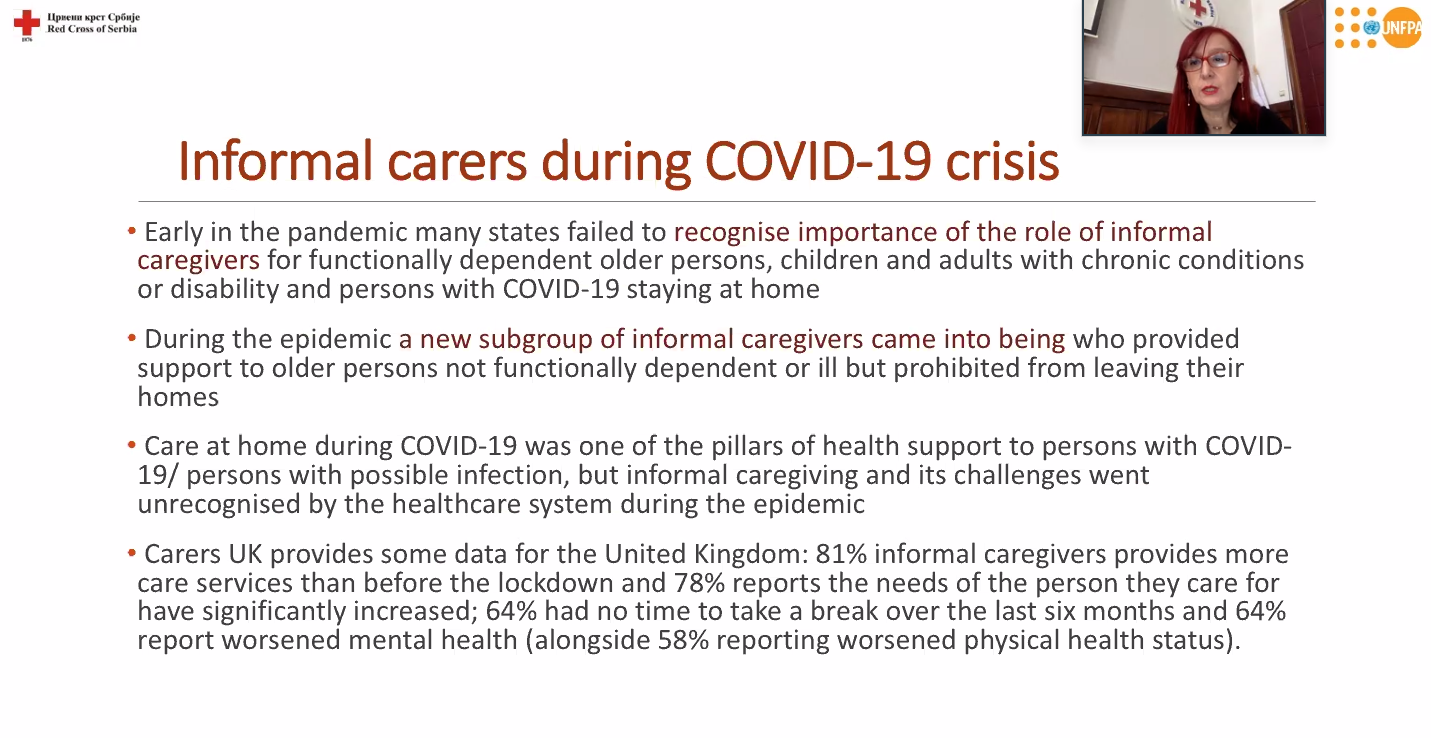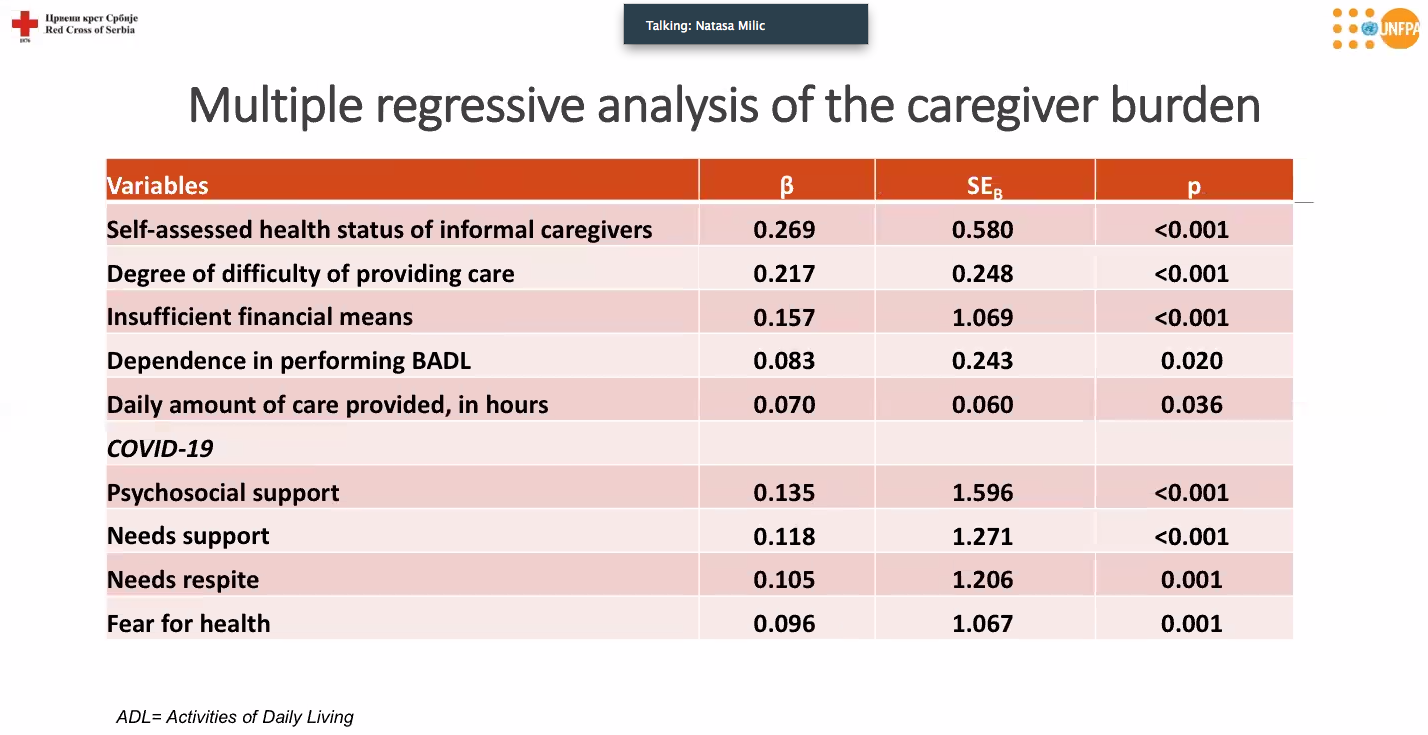Mental Health of informal caregivers
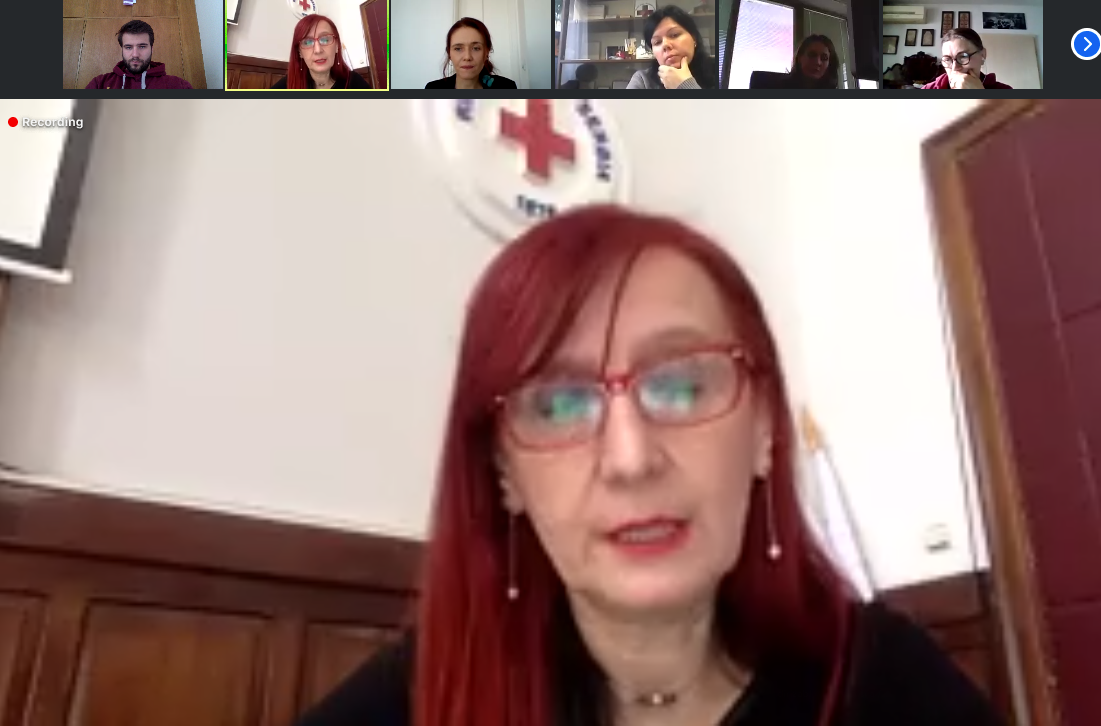
On 30 November, the Red Cross of Serbia and United Nations Population Fund (UNFPA) organised an international conference entitled “Mental Health of informal caregivers”.
The Conference had 53 participants, representatives of different agencies and organisations: United Nations, HelpAge International, International Network for Prevention of Elder Abuse, International Red Cross and Red Crescent, Reference Centre for Psychosocial Support of the International Federation of Red Cross and Red Crescent Societies, National Red Cross and Red Crescent Societies, different institutions in the Republic of Serbia, including the Commissioner for Protection of Equality, civil society and the Red Cross of Serbia.
The speakers at the conference were Nevena Sovic, UNFPA, prof. dr Natasa Milic of the Medical Faculty of the University Belgrade and Natasa Todorovic and dr Milutin Vracevic of the Red Cross of Serbia. The Confernce was organised to present results of a research implemented in July and August 2020 with a view of exploring the effects of providing informal care services (especially during the COVID-19 crisis) on mental health of informal caregivers, as well as to creating recommendations for public policy development in order to improve the quality of care and the life of persons whho need care. Informal caregivers play a central role in providing long term care services at global level with an estimated 70%-95% of all long term care services provided by family members, relatives and neighbours.
The research had 798 participants from 41 municipalities in Serbia, aged from 18 to 92. Majority of caregivers provide care to one person (84.9%), 12.6% care for two persons and 2.6% for three or more.
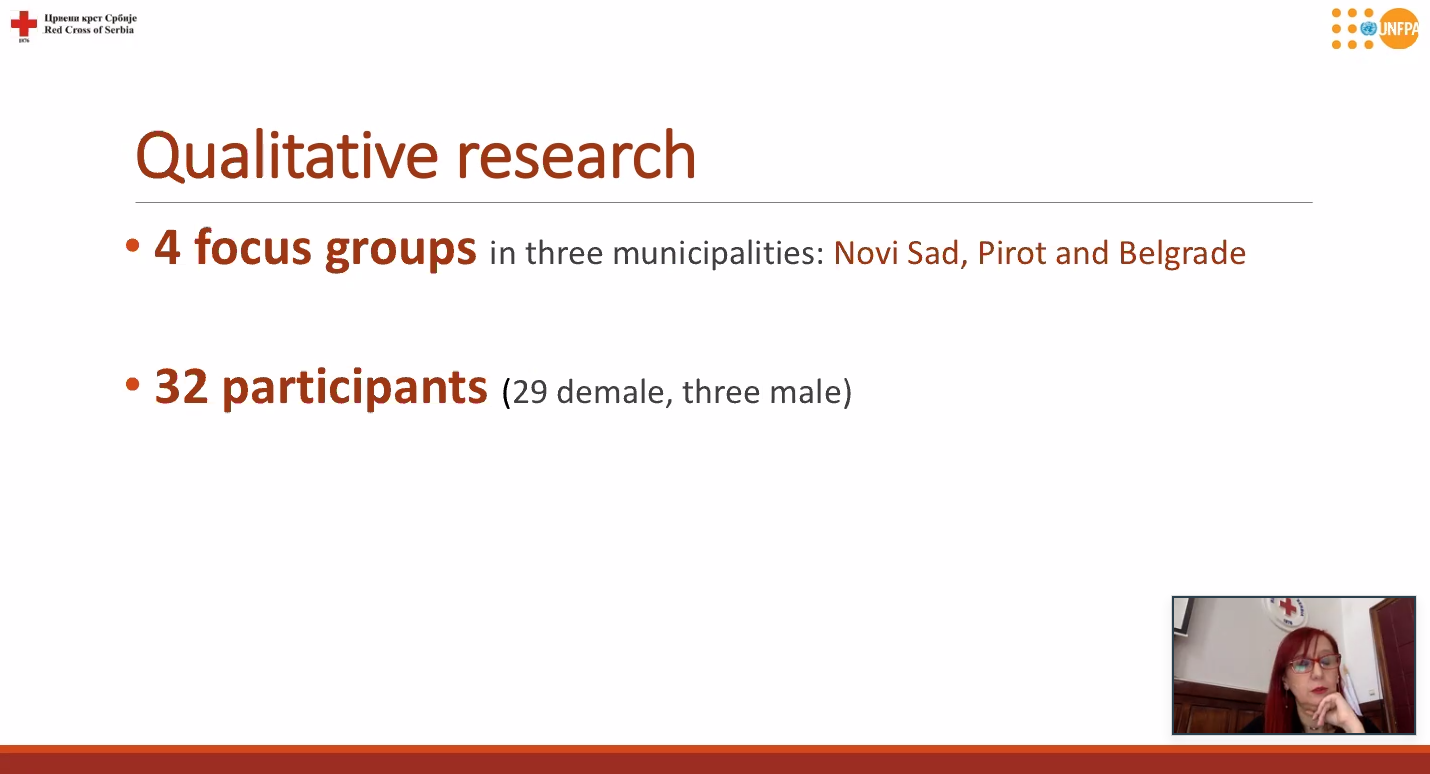
Results of the research show:
- Mild depression symptoms in 11.2% of informal caregivers and moderate depression in 8.6%. Seven percent showed symptoms of severe depression.
- During the pandemic/ lockdown, the majority of participants needed personal protective equipment (32%), information (29.3%) and 18.5% had the need for additional support. 14.8% needed hygiene items.
- 3% is now more concerned for their own health or the health of the person they provide care for
Informal caregivers with self-assessment of worsening health providing care services for a person with a higher dependence related to performing basic activities of daily life, with insufficient financial means to meet the needs and longer hours spent on care are more burdened by care.
Recommendations: Formal recognition of informal caregivers as partners in the long term care services system, because without them this system would not be able to function, bigger volume and broader offer of formal care services in the system of long term carem while increasing their accessibility, respite services, education
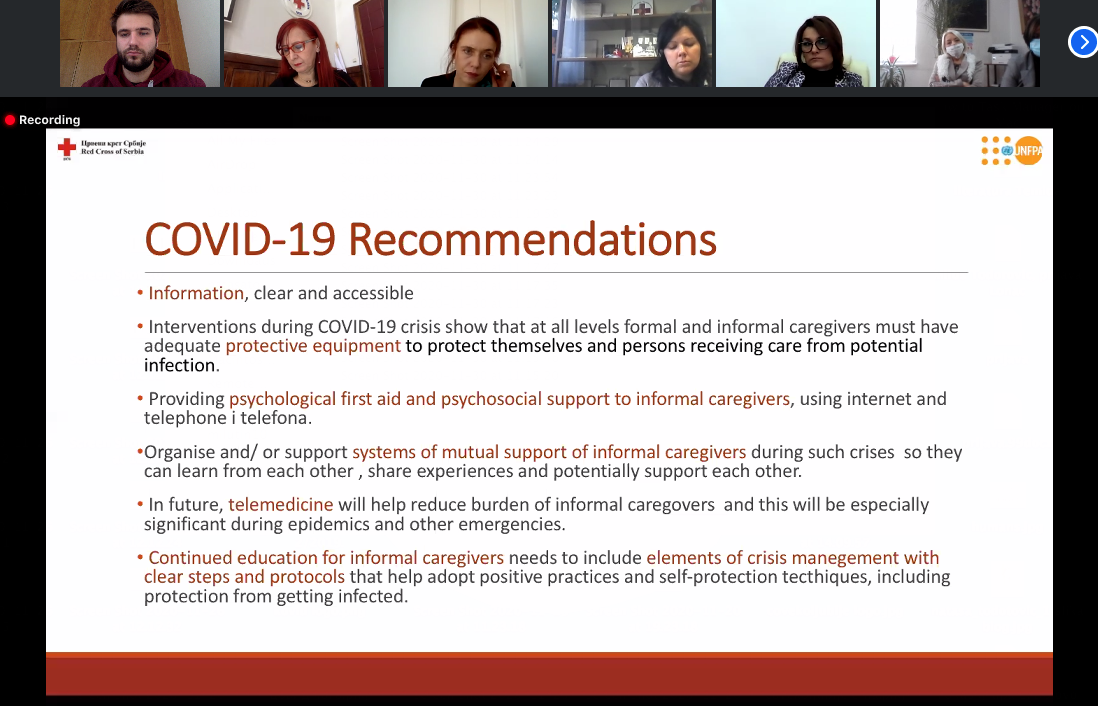
Recommendations COVID-19: Information, clear, timely and accessible; Interventions during COVID-19 crisis show that at all levels formal and informal caregivers must have adequate protective equipment to protect themselves and persons receiving care from potential infection; Providing psychological first aid and psychosocial support to informal caregivers, using internet and telephone;
Continued education for informal caregivers needs to include elements of crisis management with clear steps and protocols that help adopt positive practices and self-protection techniques, including protection from getting infected.
In future, telemedicine will help reduce burden of informal caregivers and this will be especially significant during epidemics and other emergencies. Promoting volunteering, intergenerational and intragenerational solidarity as essential response to demographic changes and evovling needs of an ageing society is additionally important.

